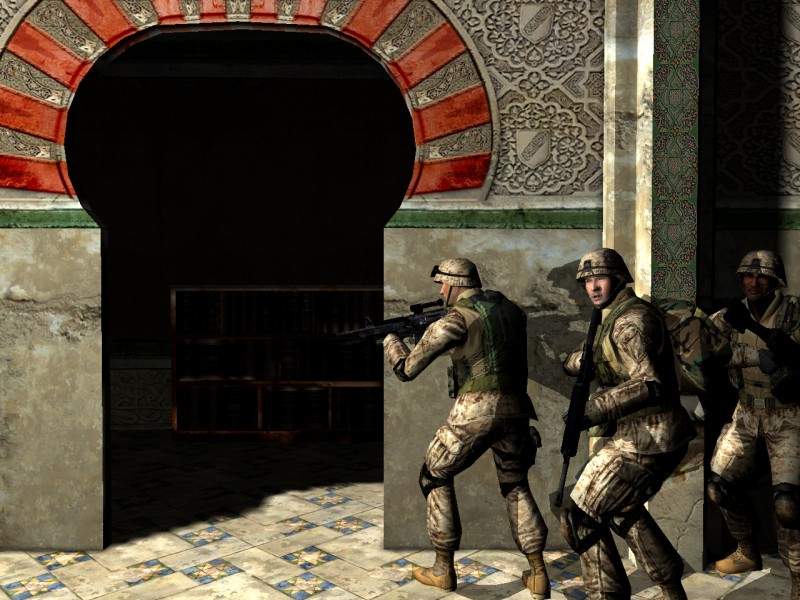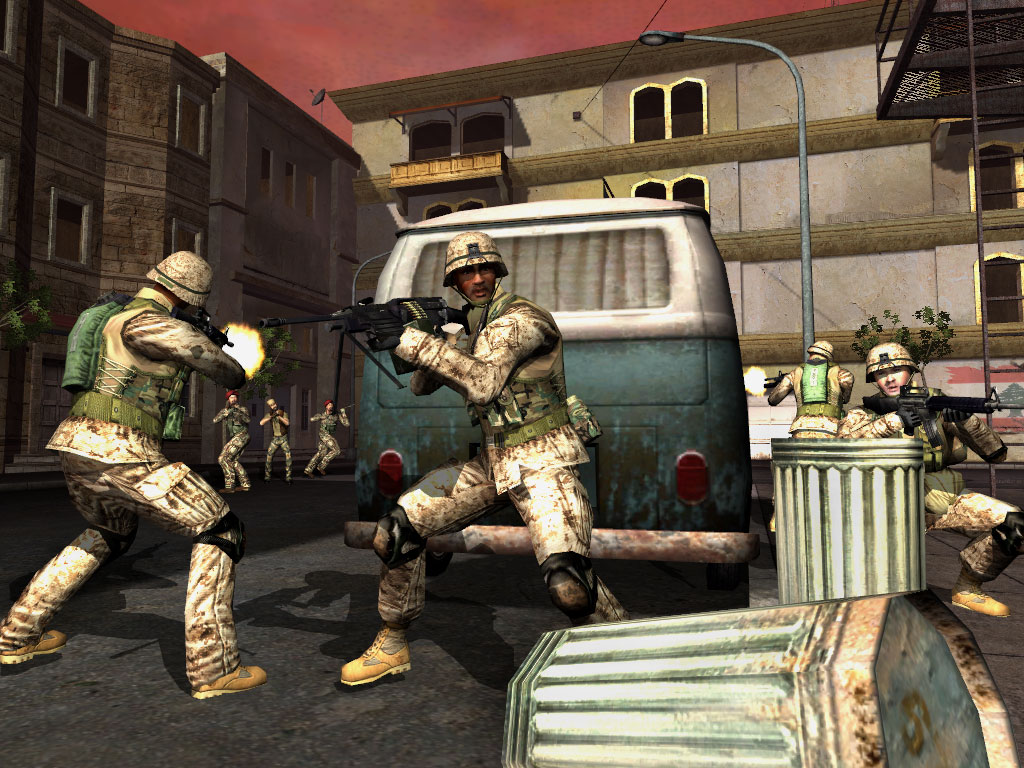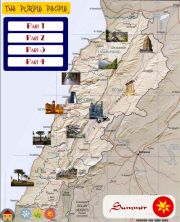|
|
Posted by finkployd in
Info
Sunday, February 18. 2007
Making Games about another Marine Invasion of Beirut, Lebanon
This FPS Game is available for the PC and Xbox:
Close Combat: First to Fight
the story
Written by Lt. Colonel Raymond Liddy, USMC (Reserve) and Destineer
Lebanon has always been a troubled land struggling for independence and freedom. This tiny nation, once known as the �Monte Carlo of the Middle East,� borders the eastern Mediterranean and has been plagued by both internal and external strife for decades. Because of its strategic importance, including its port access to the sea, Lebanon would be a prize for any of its neighbors, like Iran and Syria, as they struggle amongst themselves for regional dominance. Flare-ups over this Mediterranean jewel create dangerous instability. For this reason, United States Marines know this land well.
Despite international criticism of �war mongering� by many of his western allies, President Eisenhower in 1958 knew that a fast, bold force of U.S. Marines would be the best way to stop the neighboring United Arab Republic from invading Lebanon. Executing Operation BLUEBAT, a reinforced Marine landing team of the 6th Fleet landed in the seaport city of Beirut, without firing a shot. The swift and determined power of the Marines, which eventually grew to 14,000 Devildogs, discouraged the United Arab Republic and its terrorist guerilla insurgents who threatened Lebanon. Tensions in the region changed dramatically and Lebanon was safe once again. But the next time, almost 25 years later, the Marines would not have it so easy.
In 1983, Beirut (�the Root� in Marine parlance), took its toll the on the Marine Corps. Once again, terrorist guerilla insurgents supported by radical regimes outside the country were threatening the stability of this tiny independent country. President Reagan sent in 1,600 Marines as part of a U.N. peacekeeping force in Beirut to stabilize the country. The Marines� mission was to provide a presence in Beirut that would help establish the stability necessary for the Lebanese government to regain control of their capital.
However, the politically charged environment brewed a recipe for disaster. Hamstrung by overly restrictive U.N. Rules of Engagement that placed practical constraints on self-protection, the Marines were forced into stagnant positions and were forbidden even to chamber rounds in their M-16s. Frustrated, the Marines felt trapped in a political quagmire.
Then, a lone truck laden with 12,000 lbs. of heavy explosives raced through security checkpoints, bypassing the guards with their unloaded weapons. Coming near the Marine barracks, a tall hotel where all Marines were required to stay, the truck exploded with an eruption that sent a shock wave throughout the ancient city. It was the largest conventional explosion detonated on earth since World War II. It resulted in the largest loss of American military personnel killed in a single attack since the Vietnam War. 241 Marines and sailors perished.
When Reagan ordered the redeployment of the Marines out of Beirut, the Devildogs were angry. The Marines swore never again to operate under such constraints. They vowed to take the �lesson learned� from Beirut and train for this new �asymmetric warfare� � where stateless terrorists hide and fight among the civilian populace like cancer destroying an otherwise healthy body. The Marines re-focused and re-trained for this new threat.
PRESENT DAY : Beirut, 2006
For the last year, several groups of insurgents have taken quiet control of sections of Beirut and the surrounding areas. The largest, best-organized and best-funded of these groups is the radical Atash movement, led by Tarik Qadan, a local religious zealot of considerable influence.
The current Prime Minister of Lebanon, an impressive, strong-willed man, has kept the situation in check. Still the insurgents remain, and wait for their opportunity to strike.
Now that opportunity has come. The Prime Minister has left the country to seek medical care in the United States. Almost immediately, his aides begin to bicker among themselves and lose control over much of the Lebanese Army based in the city. In a rapidly deteriorating situation, Atash begins stepping up attacks within the city. This continues until Akhbar al'Soud, a Lebanese Colonel, takes command of the militia in Beirut and declares martial law in the city. Shortly after al'Soud takes control, large battles begin between the radical and militia forces, as they vie for control of the city and the country. Much of the fighting occurs in and around the Grand Serail, the Prime Minister's official home and the symbolic seat of government in Lebanon.
The Unites States and NATO decide the time for intervention has come. A joint operation, called Operation Preserve Peace, is begun, spearheaded by US Marines. With only small skirmishes and no casualties, the vital Beirut airport is quickly brought under US and NATO control. Shortly after, the Marines take control of the area around Beirut's main port, El Karantina, and establish El Karantina as their primary base.
As a fire team leader in the 28th Marine Expeditionary Unit (Special Operations Capable), your battle has just begun.
the game
does this look like Beirut to anyone????
seriously, a multi-million dollar game should have afforded some research on what Beirut really looks like.
Arabian Nights Architecture... where's Aladdin when you need him?

Metal Fire Escapes... hilarious!

tags: first to fight, beirut, lebanon, game, pc, xbox, first person, fps, marines, close combat, 1983, 2006
-finkployd- Games on BloggingBeirut.com
|
|
|


































